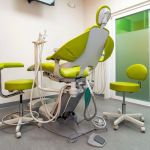Best Tooth Care Routines for a Healthier Smile
- 1. Importance of Tooth Care
- 2. Daily Tooth Care Routine
- 3. Choosing the Right Tooth Care Products
- 4. Diet and Oral Health
- 5. Regular Dental Checkups
Importance of Tooth Care
Taking care of your teeth is essential for maintaining overall health. Good tooth care goes beyond brushing and flossing; it contributes to your overall well-being by preventing tooth decay, gum disease, and other dental problems that can affect the rest of your body. Poor oral hygiene can lead to serious health conditions like heart disease, diabetes, and stroke. It's important to establish a proper tooth care routine early to ensure a lifetime of healthy smiles.
Daily Tooth Care Routine
Establishing a daily tooth care routine is the foundation of a healthy mouth. Here’s what a basic routine should include:
- Brushing: Brush your teeth at least twice a day using fluoride toothpaste. Be sure to brush for at least two minutes, paying attention to all surfaces of your teeth.
- Flossing: Flossing helps to remove plaque and food particles from between the teeth and along the gum line where a toothbrush can’t reach. Floss at least once a day.
- Mouthwash: Using an antibacterial mouthwash can help to reduce plaque and fight bad breath.
By incorporating these simple steps into your daily routine, you can keep your teeth and gums in great shape. Consistency is key, as oral hygiene is an ongoing process.
Choosing the Right Tooth Care Products
The products you choose to care for your teeth are just as important as the routine itself. When selecting toothpaste, floss, and mouthwash, look for products that meet the following criteria:
- Fluoride toothpaste: Fluoride helps to strengthen enamel and prevent cavities.
- Soft-bristled toothbrush: A soft brush is gentle on your gums and teeth, reducing the risk of gum recession and enamel damage.
- Alcohol-free mouthwash: Alcohol can dry out your mouth, so choose a non-alcoholic mouthwash to promote healthy saliva production and fresh breath.
When in doubt, consult your dentist for personalized recommendations based on your oral health needs.
Diet and Oral Health
Your diet plays a crucial role in the health of your teeth and gums. Consuming a balanced diet that’s rich in vitamins and minerals can help prevent dental issues. Here are a few tips for supporting oral health through diet:
- Limit sugary foods: Sugar feeds bacteria in the mouth, which can lead to tooth decay. Minimize sugary snacks and drinks to keep your teeth healthy.
- Eat calcium-rich foods: Foods like milk, cheese, and leafy greens provide calcium, which helps to strengthen tooth enamel.
- Stay hydrated: Drinking water throughout the day helps to wash away food particles and keeps your mouth moist.
By being mindful of your diet, you can provide the nutrients your teeth need to stay strong and healthy.
Regular Dental Checkups
Even with the best tooth care routine, regular visits to the dentist are essential for maintaining optimal oral health. Dentists can detect issues such as cavities, gum disease, and oral cancer early, when they’re easier to treat. During your checkup, your dentist will also clean your teeth to remove plaque and tartar buildup that your toothbrush can’t reach.
It’s recommended to visit your dentist at least once every six months for a thorough exam and cleaning. Following these appointments, your dentist may offer personalized advice on how to further improve your oral health.
Explore More on Maintaining Healthy Teeth
Learn more about proper tooth care and discover effective products by visiting Dentistry Toothtruth. Make sure your teeth receive the care they deserve by choosing high-quality products and seeking expert advice.







 Samantha H Roach, DDS, MS5.0 (26 review)
Samantha H Roach, DDS, MS5.0 (26 review) Pediatric Dental Associates of Northeast Philadelphia4.0 (2351 review)
Pediatric Dental Associates of Northeast Philadelphia4.0 (2351 review) The Better Sleep Dentists5.0 (2 review)
The Better Sleep Dentists5.0 (2 review) Shawnee Christian Healthcare - Dental4.0 (361 review)
Shawnee Christian Healthcare - Dental4.0 (361 review) Ideal Dental Services: Freedman, Richard S DDS4.0 (180 review)
Ideal Dental Services: Freedman, Richard S DDS4.0 (180 review) Dr. Jeffrey C. Klein DDS5.0 (11 review)
Dr. Jeffrey C. Klein DDS5.0 (11 review) The Importance of Oral Health Education During Pregnancy for a Healthy Pregnancy
The Importance of Oral Health Education During Pregnancy for a Healthy Pregnancy Best Tips for Brushing Your Teeth Properly for Healthy Gums: Essential Techniques for Oral Health
Best Tips for Brushing Your Teeth Properly for Healthy Gums: Essential Techniques for Oral Health Why Skipping Dental Checkups Can Lead to Bigger Oral Health Problems
Why Skipping Dental Checkups Can Lead to Bigger Oral Health Problems Advantages of Porcelain Dental Restorations
Advantages of Porcelain Dental Restorations How Can Diabetes Cause Tooth and Gum Problems? Preventing and Managing Oral Health Issues
How Can Diabetes Cause Tooth and Gum Problems? Preventing and Managing Oral Health Issues Healthy Habits for Promoting Good Oral Health and Hygiene: Tips for a Healthy Smile
Healthy Habits for Promoting Good Oral Health and Hygiene: Tips for a Healthy Smile